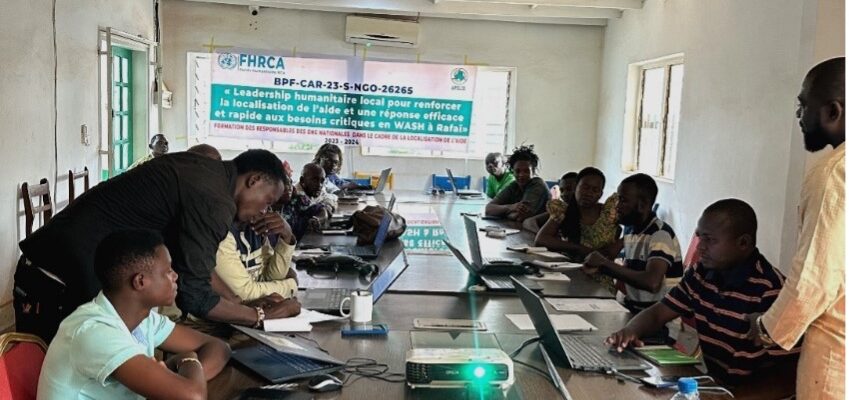Improving aid delivery through collaboration – and extra funding
CAR | 2023 | CBPF
Rafai, Haut-Mbomou, Central African Republic. Amid the Central African Republic’s humanitarian crisis, over 120 national NGOs were engaged in trying to help affected people.
However, insufficient funding opportunities and institutional capacities limited what they were able to deliver.
An example of this was observed in the southwestern town of Rafai, where thousands of people displaced from Zemio, Guinikoumba, Dembia, Guerekindo, Kpiamou and Mangoupa all lacked access to clean water and sanitation and existing services were overwhelmed.
APSUD, a national NGO, developed a transformative project with the aim to enhance the capacity of three national NGOs — Organization of Women for Humanitarian Action and Sustainable Recovery (OFAHRD), Let’s Stand Up for Sustainable Development Promotion (LNPDD), and AU SECOURS (Aid Association). Funded by the CAR Humanitarian Fund, this collaboration focused on providing financial support and project management skills to empower the local organizations and help them respond more effectively to the growing humanitarian needs in Rafai.
“I have regular coaching sessions three times a week on monitoring and evaluation”, says Mexant, LNPDD’s Monitoring and Evaluation Officer, of the APSUD capacity-building program. “Before this training, our tools were haphazardly gathered from various sources. It was initially quite a challenge for us to work within APSUD’s operational environment, but, as we attended more and more sessions, we realized the importance of reassessing our methodology. And then we upgraded all our monitoring and evaluation systems.”
Capacity-building projects like this have helped instill newfound confidence in project implementation in Rafai – and improved the humanitarian services that people are getting.
For more information on the CAR Humanitarian Fund.
